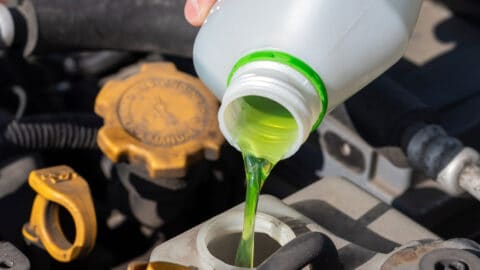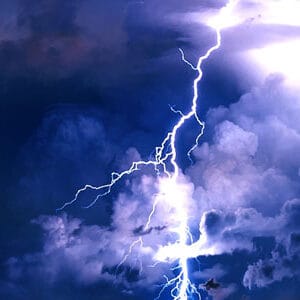Every day the engine in your vehicle can produce enough heat to destroy itself over and over again. In order for that not to happen all vehicles have a cooling system that helps protect your vehicle from overheating and dealing with one very expensive catastrophe. The cooling system performs this all-important task by circulating coolant, or also called antifreeze (same fluid), around the engine, in a sealed jacket that surrounds the motor, by use of a water pump. This process is when heat from the engine is transferred from the engine block into coolant which is then pumped through the radiator in order to cool it down before it is recirculated back into the engine block on a continuous basis.
Signs Your Vehicle Is In Need Of A Coolant Flush
Overheating engine – A steaming hood on the side of the road? That is one very clear sign you need new engine coolant.
- High temperature gauge – If you see your engine temperature gauge often runs hot, your vehicle will suffer for it.
- Maple syrup scent (Or a sweet scent overall) – You’ll notice this sweet smell of antifreeze if it’s being burnt by your engine.
- Leaking fluid – Antifreeze is commonly green or orange, but it can come in different colors. Puddles of antifreeze below your vehicle always spells trouble.
What do technicians look at during a cooling system service?
- Inspect the radiator, water pump, thermostat, heater core, control valve, head gasket, fans, belts and hoses
- Check for leaks, cracks, and worn elements
- Check pressure conditions and coolant volume
- Flush and dispose of used coolant fluid
- Install any necessary replacement parts
- Refill the system with antifreeze coolant fluid
Safety Tips While Dealing With Cooling System
Keep in mind: The safest thing you can do is bring your car to a certified technician to perform these needed services & repairs
- If you decide to check or service your cooling system (radiator) yourself, please use extreme caution. When opening a hot radiator or coolant reservoir/overflow tank when it has not fully cooled off, it can cause severe burns.
- When it comes to antifreeze types it is very important not to mix coolants unless absolutely necessary (a true emergency situation). Most, if not all, coolants must be diluted with water at the proper ratios and should not be used full-strength. Full-strength antifreeze actually has a lower freeze point than when mixed with water. Antifreeze/coolant (one in the same thing), when mixed at a 50/50 ratio with water, provides excellent anti-freeze, anti-boil, and anti-corrosive properties, so mixing them should be an absolute last resort if at all.


